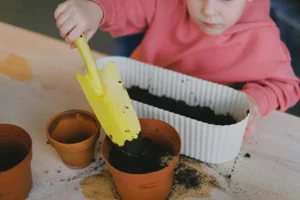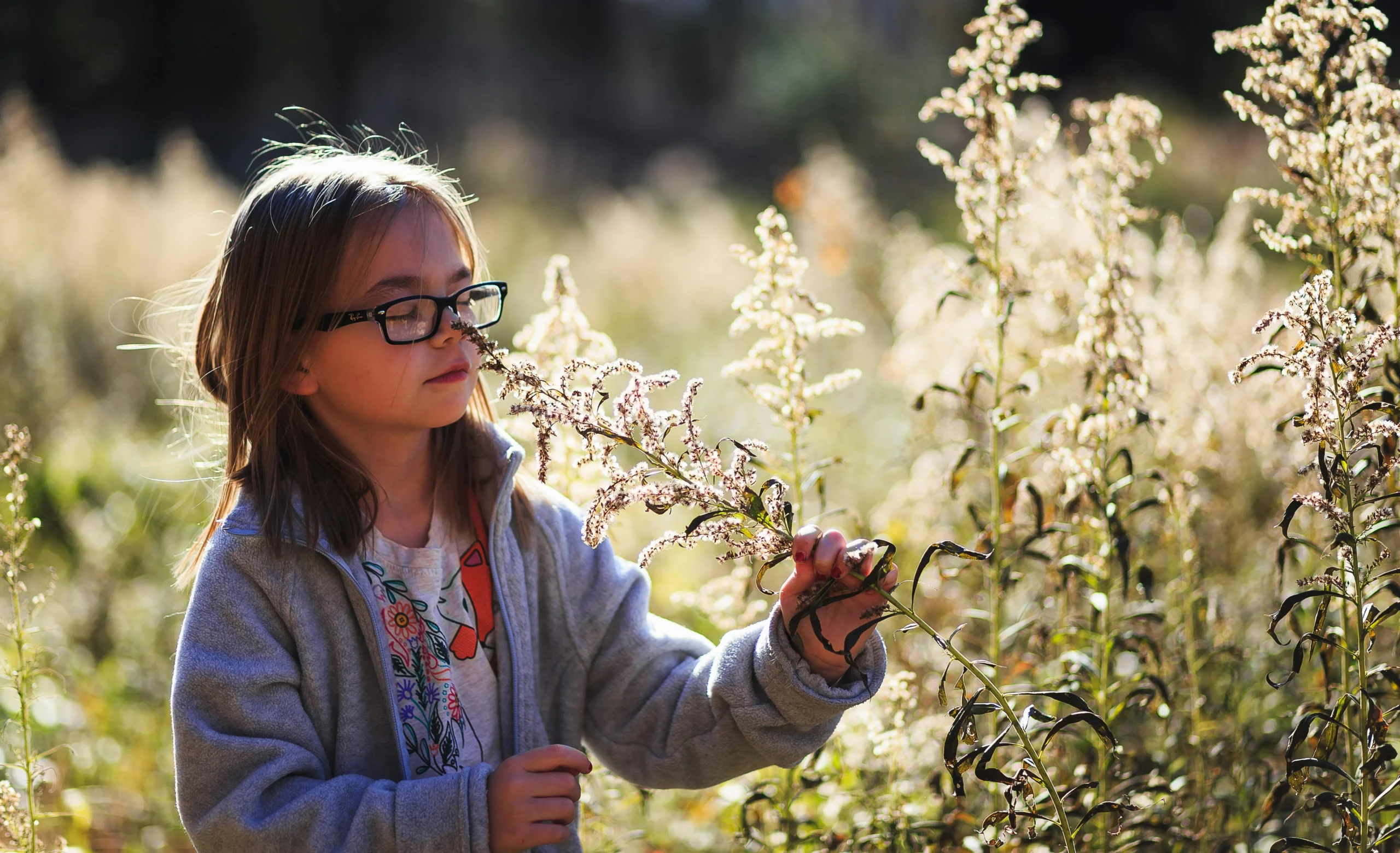Redefining Social Interaction in the Digital Era Today’s children are growing up in a world where digital screens often replace playgrounds and emojis replace expressions. While technology has its benefits, like access to learning tools, global exposure, and creative platforms, it has also quietly reduced the quality of real, face-to-face interactions. And here’s the truth: No app can replicate...
Nature Play and Kids’ IQ: How Outdoor Exploration Boosts Brainpower
It’s no secret that kids today are spending less time outdoors than ever before. Parks and playgrounds are quieter, while screens glow brighter in living rooms and classrooms alike. Research shows the average child spends more than six hours a day on gadgets, but less than one hour outside. For parents and educators, this raises an important question: what are children missing out on?
The answer is profound. Outdoor exploration provides a wealth of nature play benefits for kids, from boosting brain development to fostering emotional intelligence and resilience. More than just “running around,” nature play shapes young minds in ways screens never can.
This article dives into the science, the practical activities, and the parenting strategies that make nature an essential classroom for every child.
Why Modern Kids Spend Less Time Outdoors
The shift away from nature is not accidental. Several lifestyle changes contribute:
- Gadgets: Tablets, smartphones, and gaming devices keep kids indoors, offering quick entertainment that’s hard to resist.
- Urban lifestyles: Growing up in apartments or cities with limited green space reduces opportunities for outdoor exploration.
- Parental concerns: Safety, traffic, and busy schedules often limit unstructured play outside.
- Academic pressure: More homework and structured after-school classes mean less time for free play.
While these factors are real, the cost of reduced nature exposure is high. Limiting nature play benefits for kids means children miss out on brain-boosting, health-enhancing opportunities that can’t be replicated indoors.
-
The Science Behind Nature Play

Studies Linking Outdoor Play to IQ
Multiple studies highlight a direct link between outdoor play and higher IQ scores. Research published in Frontiers in Psychology found that children who spent more time in green spaces performed better on tasks involving working memory and attention span. This is one of the clearest indicators of how nature helps child development by engaging the brain in ways structured classrooms cannot.
Sensory-Rich Environments
Natural settings are filled with multisensory input: the rustle of leaves, the texture of bark, the smell of soil after rain. These constant stimuli activate neural pathways, strengthening memory and cognitive flexibility.
Stress Reduction & Focus
Nature also has a calming effect. Exposure to green spaces reduces cortisol (the stress hormone), creating optimal conditions for learning. Children who regularly experience nature demonstrate sharper focus, fewer behavioral problems, and stronger learning retention.
In short, nature play benefits for kids extend beyond exercise. It’s neuroscience in action.
-
How Nature Builds Brainpower
Nature is not just a playground; it’s a laboratory for life. Here’s how nature helps child development in specific, brain-boosting ways:
- Curiosity-driven exploration: When children ask “why is this leaf shaped like that?” or “where does this bug live?”, they engage problem-solving and analytical skills naturally.
- Navigating obstacles: Walking across uneven ground, climbing a tree, or balancing on a log helps them practice decision-making, coordination, and resilience.
- Unstructured play: Unlike structured classroom activities, open-ended nature play sparks imagination, role-play, and creativity.
- Multisensory learning: Touching rough stones, smelling flowers, hearing birds: These experiences strengthen memory pathways and cognitive flexibility.
Every moment outdoors multiplies the nature play benefits for kids, embedding problem-solving, focus, and adaptability into their everyday life.
-
Nature Play vs. Screen Time
Let’s compare what kids get from each:
- Screens: Passive consumption, dopamine-driven quick rewards, shorter attention spans, and limited problem-solving.
- Outdoors: Active engagement, critical thinking, creativity, longer focus, and real-life problem-solving.
The long-term impact is clear. Screens often nurture impatience, while nature nurtures patience and curiosity. By trading even 30 minutes of daily screen time for outdoor exploration, parents can multiply nature play benefits for kids and reduce the risks of overstimulation.
-
Everyday Nature Activities for Kids

The best part about nature activities for kids is that they don’t have to be complicated or expensive. Here are practical, everyday options:
Simple & Accessible Activities
- Nature treasure hunts: Hide or search for stones, leaves, or feathers in a park.
- Gardening basics: Watering plants, planting seeds, or harvesting vegetables are excellent for responsibility and observation.
- Leaf art: Collect leaves of different shapes and use them to create collages or prints.
- Cloud-watching: Lie on the grass and create stories from cloud shapes. This is a fun exercise in imagination.
Urban-Friendly Hacks
For families in cities, nature play ideas for kids can be just as engaging:
- Balcony gardening: Grow herbs or flowers in pots.
- Weekend trips: Visit a botanical garden, zoo, or nature trail once a week.
- Nature-inspired crafts: Use twigs, stones, or pressed flowers to make DIY art indoors.
Even in small doses, these nature activities for kids nurture attention, creativity, and critical thinking.
-
Emotional & Social Benefits
While brain development is key, how nature helps child development goes deeper. It builds emotional and social strength too.
- Empathy: Caring for plants, animals, or observing ecosystems teaches children interconnectedness and compassion.
- Teamwork: Group games like hide-and-seek or cooperative building with natural materials foster collaboration.
- Mindfulness: Listening to birds, feeling the breeze, or watching sunsets promotes calmness and stress relief.
This holistic mix is why nature play benefits for kids are unmatched. They grow smarter, calmer, and more socially adept.
-
Parents’ Role in Encouraging Nature Play

Children follow by example. If parents prioritize outdoor time, children will too. Here’s how to make it work:
- Set boundaries with gadgets: Establish tech-free times at home. This is essential to balance screen exposure with nature play ideas for kids.
- Schedule outdoor time: Aim for daily outdoor play, even if it’s just 30 minutes, or longer weekend nature sessions.
- Make it family time: Gardening, hiking, or evening walks create shared experiences and consistency.
- Urban solutions: Use rooftop gardens, community green spaces, or small nearby parks. Consistency matters more than location.
Parents who prioritize these steps show children firsthand how nature helps child development, ensuring they grow into resilient, balanced individuals.
Conclusion
Nature is free, accessible, and profoundly powerful. For parents wondering how to nurture focus, creativity, resilience, and emotional intelligence, the answer is simple: more time outdoors. The evidence is overwhelming. Nature play benefits for kids include higher IQ, sharper memory, calmer moods, stronger empathy, and richer imagination.
Incorporating nature activities for kids daily, even in small ways, rewires their brains for patience, problem-solving, and creativity. More importantly, it reconnects them with the world they’re part of.

